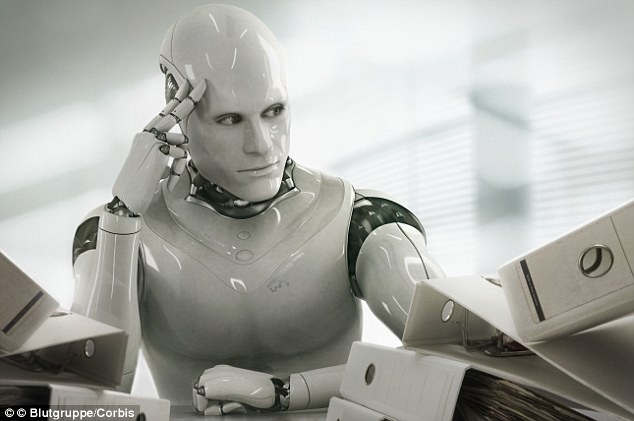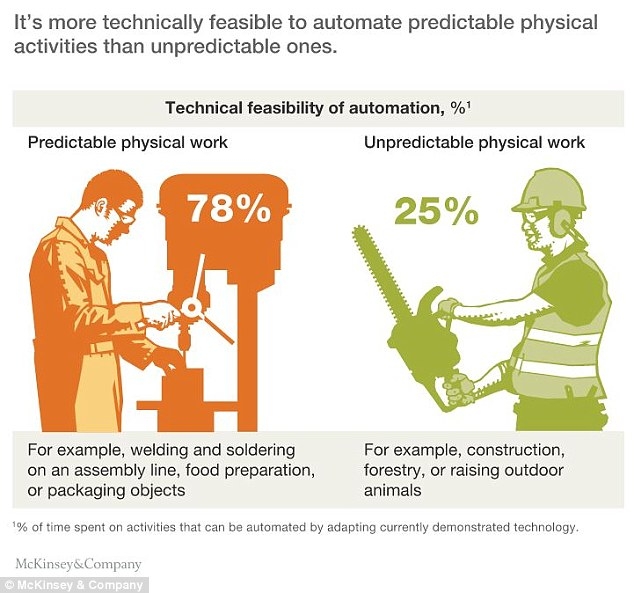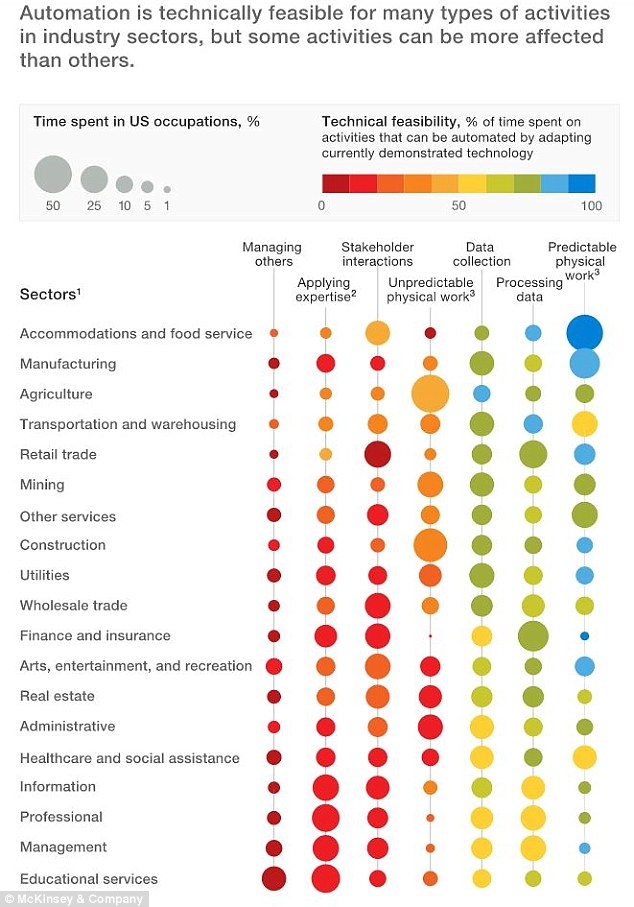McKinsey report: 60% of occupations will be affected by robots, and manufacturing and food service industries will have the greatest impact

As robots invade the human workplace more and more, many people worry that robots will grab their jobs. Some people are worried every day, and some people say that it is worrying people. Now, let authoritative data tell you that the robot will grab your job? Which careers are at higher risk?
Recently, the US investigation company McKinsey surveyed more than 2000 kinds of work activities in more than 800 jobs in the United States, analyzed the time and skills required for each type of activity, and analyzed the automation components contained in each activity. Jobs are most likely to face the risk of unemployment.
Researchers say that compared to mental work, manual laborers face greater risk of unemployment. In manual labor, those who rely more on "predictable physical labor" have higher degree of automation and greater risk of unemployment. The so-called "predictable physical labor" is the work activities such as food manufacturing, welding and other assembly lines. These tasks are mainly repeated operations and basically predict what the next action will be. And "unpredictable physical labor", such as construction, forestry, animal husbandry, etc., is facing less risk of unemployment.

The investigator analyzed a variety of factors and then assessed high-risk occupations:
In manufacturing, 59% of work activities can be automated. In the field of manufacturing that can be automated, 90% of jobs (such as welding, cutting, sawing, etc.) can be performed by robots.
In food and accommodation services, 73% of work activities can be automated.
In the retail industry, 53% of the work activities can be automated; in sales activities, 47% of the work activities can be automated; in book management, accounting and audit work, 86% of the work activities can be automated.
The higher the degree of automation, the higher the risk of being replaced by a robot. In contrast, the work that includes mental work is much harder to replace. Through investigation and analysis, McKinsey has come up with the following tasks that are difficult to replace by robots:
Education and training work;
Medical work, especially those requiring higher professional skills and direct contact with patients, such as dentists.
Knowledge work, including management work.

As automation has grown more and more rapidly, robots have become easier to replace human work. In addition, relevant experts said that if the machine can have natural language skills comparable to humans, then the biggest breakthrough in technology will come, and more and more occupations will be replaced by robots.
However, although the results may seem a little scary, but do not worry, the investigators said that even if robots are developing more and more rapidly, they will not take away your jobs now. Because the degree of automation is not the only factor that determines which careers will be replaced by robots, whether robots will enter these workplaces in large quantities, but also factors such as robot cost and expertise. In addition, people engaged in these occupations can also keep their jobs by learning and training. And, even if robots do replace humans in certain industries, it does not mean that people engaged in these industries will be unemployed. Because, if that day really comes, then a lot of new jobs will come into being, such as robot watchers, robot operators and so on.
But anyway, people have to keep learning, so that they won't be robbed of their jobs by our own machines.
Via:MailOnline